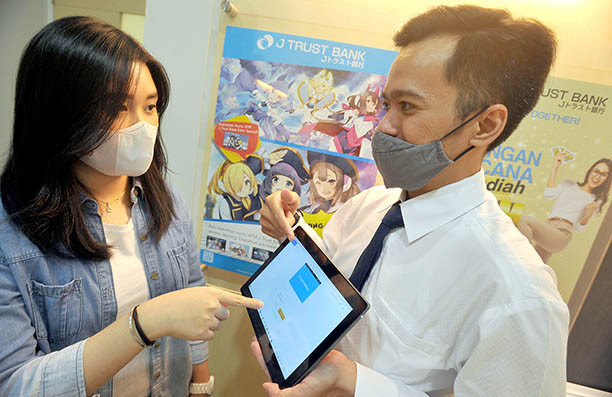Popular Reads
Top Results
Can't find what you're looking for?
View all search resultsPopular Reads
Top Results
Can't find what you're looking for?
View all search resultsThe prospect and challenges of digitalization in the banking industry
We are seeing a wave of newcomers coming from the tech ecosystem, with fintech and e-commerce players setting up banking operations to strengthen their financial ecosystem play and further monetize their high customer base.
Change text size
Gift Premium Articles
to Anyone
C
OVID-19 has escalated digitalization in Indonesia, in particular, the banking industry and how people perform banking transactions. Individual or business representatives that were still comfortable visiting branches or meeting relationship managers were forced to change and adapt to the new normal using technology.
Indonesian banks have adopted and used this opportunity by creating digital solutions to maintain loyalty or even to propel and gain market share. One of the most improved areas is arguably personal mobile banking.
We can split the two initiatives of digitalization in the banking industry into conventional banks building digital solutions for customers and their own operation, and digital-only banks that are typically newly set up to focus on digital-first solutions without focusing on physical branches.
Both players have been pampering their customers with features to make their daily financial lives easier and providing mobile personal banking applications that can be a one-stop solution, ranging from daily transactions, buying and managing investments, managing and applying for loans, foreign exchange transactions.
While the transitions might seem daunting for people that might not be so familiar with tech, the banking industry had been spending resources to create friendly manuals through videos or even invest in chat bots and dedicate customer service lines to assist people. Cybersecurity has become a crucial component for digital banks, as without proper safeguard measures, customers can lose their wealth upon losing or having their phone being breached by third-party software.
When it comes to digitalization, banks need to strengthen their internal capabilities, as well as personal data privacy and protection. While there will always be the argument that digital data can be hacked or deleted, it can also be a potential solution to the ongoing problem of personal customer data in the paper-based format being taken by banking staff when they move to a different company or job.
Digital crimes are universal and affect all of society. Most digital banks also offer a full digital onboarding experience for new customers but still maintain a strict know your customer (KYC) conduct by linking to government data, using technology and/or call centers to perform video verifications. The KYC process will be necessary to prevent the abuse of digital onboarding in the name of money laundering and other illegal activities.



















